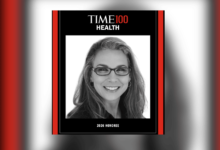New guidance for nurses on asylum seeker healthcare

New guidance for nurses and other clinicians working with asylum seekers has been published, after reports that many are going without healthcare or struggling to access it due to language barriers or confusion with the system.
The British Red Cross has released Delivering with Dignity, a framework document aimed at preventing asylum seekers in England from falling between the cracks or receiving sub-optimal care.
“These are people stuck in a poor asylum system, unable to work and their living conditions are not ideal”
Wayne Henderson
Delivering with Dignity, which was produced with input from primary care nurses, doctors, health leaders and others, gives practical advice on working with asylum seekers.
It highlighted that asylum seekers face barriers to accessing “timely, quality and appropriate” care.
These barriers include language barriers, a lack of knowledge about the NHS and “uncertainty” around what they are entitled to.
As well as this, the framework stated that many in the asylum system are destitute, and in turn digitally excluded – meaning they cannot access the NHS app or other means of booking appointments online.
It also mentioned the negative physical and mental health impacts of living for extended periods of time in temporary accommodation, such as hotels.
Delivering With Dignity used evidence from asylum seekers, settled refugees, nurses and other health professionals to develop its recommendations, which were split into five “pillars of good practice”.
The first, ‘working in partnership’, emphasised the need for healthcare professionals to work in multidisciplinary groups to ensure patients receive the care they need, and for collaboration between NHS England, integrated care systems and the Home Office.
Under the second pillar, ‘upskilling the workforce’, the British Red Cross called for “specialist training” for nurses and other healthcare workers to help them understand the entitlements and unique needs an asylum seeker may have.
This training, the document said, would include trauma-informed care, working with interpreters and reducing variations in the quality of care for asylum seekers.
The third pillar is titled ‘valuing lived experience’, and recommended including people and organisations with real-life experience of seeking asylum to contribute towards changes to care.
‘Maximising data for action’ is the fourth pillar and it highlighted the importance of collecting and sharing data on asylum seeker healthcare to help “establish an evidence base” for best practice.
The final pillar, ‘strengthening pathways to care’, called for action to make sure there were effective routes into healthcare in place for people seeking asylum in England.
This included ensuring an initial health assessment is given to every asylum seeker within 10 days of their claim. The British Red Cross said these health assessments could be done by nurses, healthcare assistants or medical staff such as GPs.
Further, this final pillar called for improvements to education on the way the NHS works for people entering the system, and commissioning specific and “tailored” services to asylum seekers.
Wayne Henderson, a British Red Cross volunteer and mental health nurse from Leicester, was consulted on the framework.
Mr Henderson is director of Inclusion Healthcare, which runs one of the UK’s few specialist GP practices for asylum seekers – of which the framework called for more.
Mr Henderson, who said his practice has a “GP and nurse-led” approach to working with patients, outlined the value of specialist services like his.
“The asylum population is very different to the standard GP population. It’s predominantly young people and it’s 75% male, mostly of working age,” he told Nursing Times.
“Our new framework sets out clear and practical recommendations which healthcare workers can use”
Victoria Corbishley
“When people arrive, we carry out a full health assessment and screen for communicable diseases, which are more prevalent outside the UK. We see more minor ailments rather than long-term conditions.
“But a lot of the physical ailments are attached to mental health and wellbeing issues, largely because these are people stuck in a poor asylum system, unable to work and their living conditions are not ideal.”
Mr Henderson said mental health occupies around 50% of his organisation’s appointments, adding: “My role is to help GPs with what they are good at, and support individuals with specific mental health work.
“We also have an advanced mental health practitioner if required.”
Mr Henderson explained that tailored services like his were also needed because of practicalities; appointments at the practice take longer than average in order to allow interpreters to attend more frequently.
Nurses, Mr Henderson added, have a role to play in improving care for asylum seekrs even if they do not work in a specialist service: “When I talk to anyone from outside of what I do, they have no understanding of what asylum means.
“They only have the negative media perception of what it means, which in no way, shape or form reflects who these patients are. I try to educate people as best I can, so they can understand what it is like to come here and to be in the asylum system.”
He encouraged nurses to read the new Red Cross guidance.
“I think as with all good practice guidance, you should be looking at and keeping up to date with something like this, if it’s an area you’re working in, because it will help to improve care and make your role easier. And if there are areas of good practice, reach out to them to get some help,” said Mr Henderson.
The framework can be found here.
Victoria Corbishley, senior director of health and local crisis response for the British Red Cross, added: “Our new framework sets out clear and practical recommendations which healthcare workers can use to improve the way they commission and deliver services.
“This will help remove unnecessary barriers for people seeking asylum and ensure they can live in dignity with access to the care they need.”






